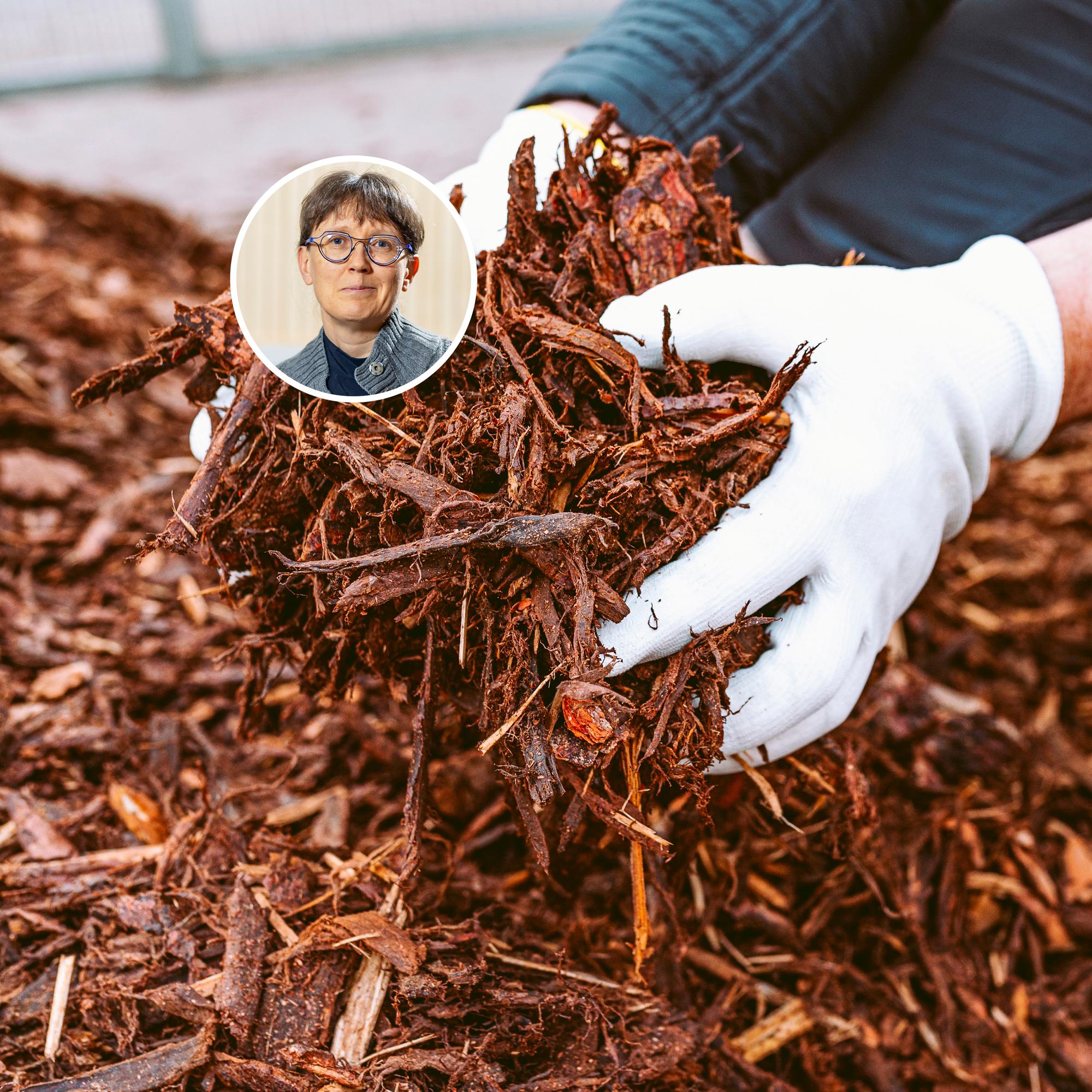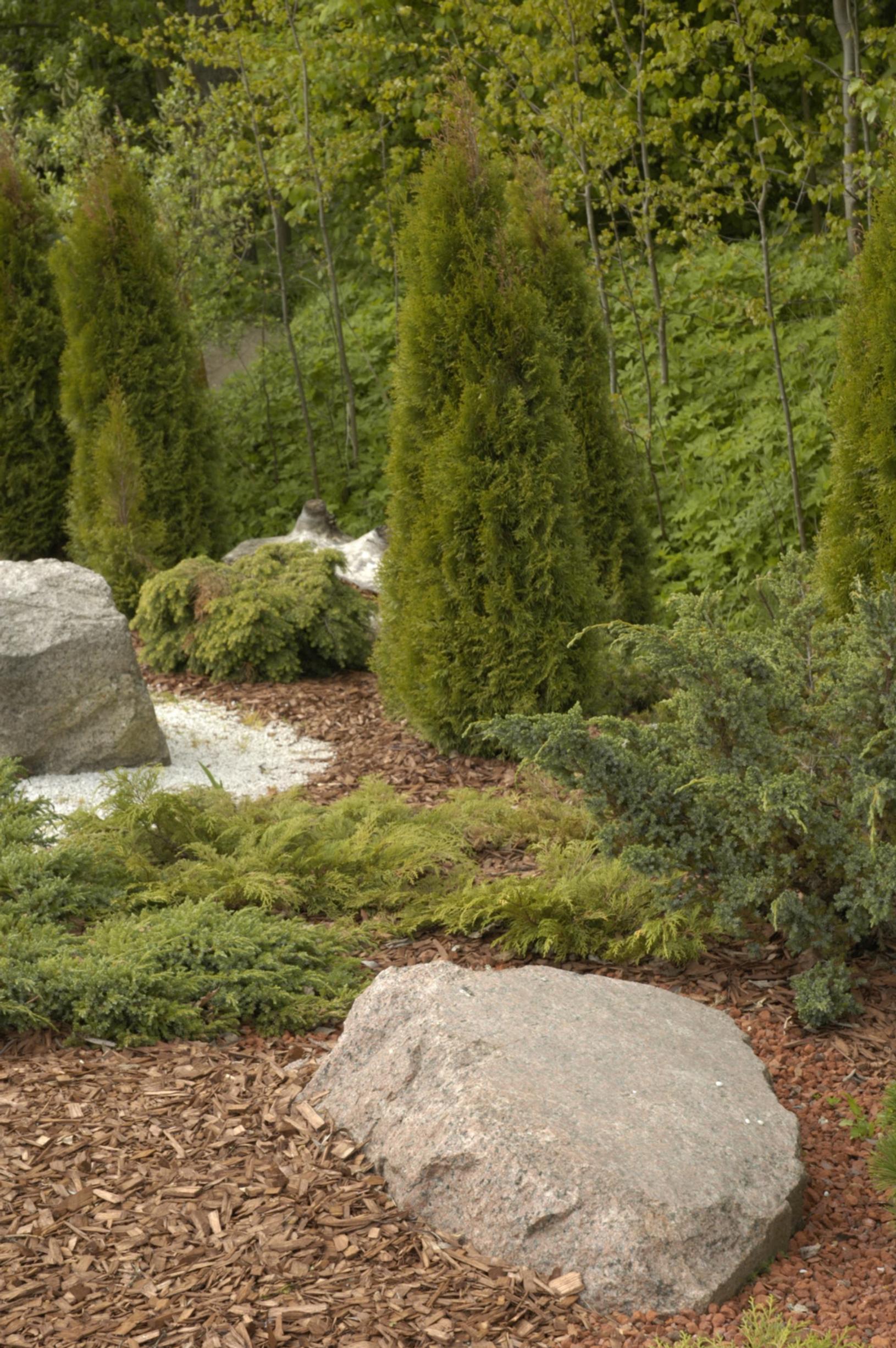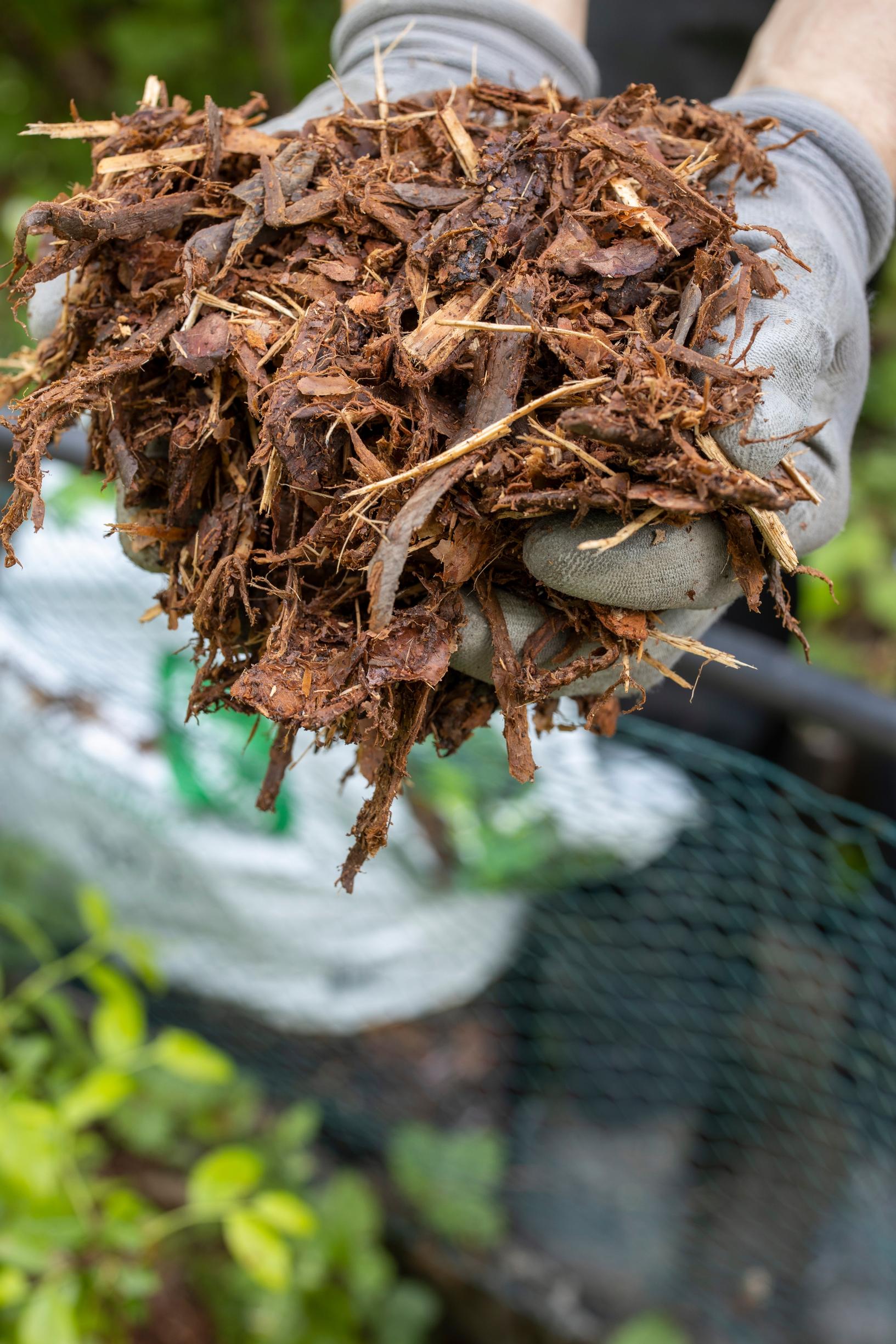
Bark mulch doesn’t always work and can even be harmful—an expert suggests alternatives
Bark mulch made from conifer bark is too coarse for perennials and delicate roses. It doesn’t even control all weeds, says horticultural agronomist and Doctor of Agriculture and Forestry, Anu Riikonen. In our Exactly! series, experts share fascinating information from their field.
“It doesn’t make sense to spread bark mulch everywhere. It works wonderfully under conifers, deciduous shrubs, and rhododendrons, but it’s not suitable for perennials and delicate roses.”
Bark mulch made from conifer bark is too coarse for perennials. It can also acidify the soil slightly over time if it’s added frequently.
You should choose mulch based on the plants. For perennials and roses leaf-based or lake reed mulch works better than bark mulch.


Like all mulches, bark mulch is useful in places where leaves and other plant debris would otherwise be collected. It adds organic matter, and as it decomposes, it increases soil humus and helps bind carbon in the soil. Essentially, it mimics nature, where leaf litter is always present. Mulch also prevents water from evaporating from the soil, which reduces the need for watering.
A bark mulch layer of about 5–7 centimeters is ideal. You shouldn’t exceed that, especially on clay soils, where plants often suffer from excess moisture. It’s a good idea to create airy raised beds on clay sites.
“In my own yard, I don’t use mulch.”
Usually, people expect bark mulch to prevent weeds from sprouting. But in practice, it doesn’t always work that way: it won’t stop creeping thistle, sow thistle, or ground elder. At the very least, weed roots should be removed thoroughly before applying mulch. Windblown seeds always find their way into the garden. For them, the moist soil under mulch is a perfect place to germinate.
In my own yard, I don’t use mulch. I don’t rake leaves or remove dead plant parts. If I were to buy mulch, I’d probably choose leaf-based wood chips. I wouldn’t want a thick layer because it slows bulb flowers in spring. Mulched soil stays cold for quite a while, and small bulbs might not be able to push through it.”
Anu Riikonen’s tips for alternatives to bark mulch
- Try using coarse sand or drainage gravel instead of bark mulch to help the soil retain moisture. A sand-based mulch is especially good for plants in hot, dry spots.
- Groundcover plants are a great alternative to mulch. They retain moisture and don’t leave room for weeds to grow. I read in the 1990s in Pentti Alanko’s books that the best choice was to plant five different groundcover species instead of just one, so at least one will thrive. This is still excellent advice today.






